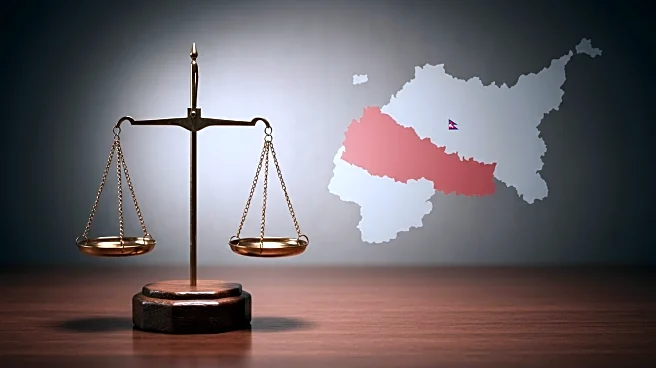What's Happening?
A federal appeals court has granted the Trump administration the ability to end Temporary Protected Status (TPS) for approximately 60,000 migrants from Central America and Nepal. This decision allows the Department of Homeland Security (DHS) to proceed with the removal of around 7,000 Nepalese migrants whose TPS expired on August 5, and will affect 51,000 Hondurans and 3,000 Nicaraguans whose TPS is set to expire on September 8. The 9th U.S. Circuit Court of Appeals issued an emergency stay pending an appeal, following claims from immigrant rights advocates that the administration unlawfully terminated TPS designations. TPS is a designation that prevents deportation and allows migrants to work in the U.S., typically granted when conditions in their home countries are unsafe.
Why It's Important?
The court's decision marks a significant shift in U.S. immigration policy, potentially leading to mass deportations of long-term residents who have established lives in the country. Many TPS holders have lived in the U.S. for decades, contributing to communities and raising U.S.-citizen children. The move aligns with the Trump administration's broader efforts to tighten immigration controls and reduce the number of immigrants eligible for legal protections. This decision could have profound impacts on affected families and communities, as well as on U.S. industries that rely on immigrant labor.
What's Next?
The next hearing in the case is scheduled for November 18, where further legal arguments will be presented. Immigrant rights groups are likely to continue challenging the administration's actions, potentially leading to more legal battles. The decision may also prompt political responses from lawmakers and advocacy groups, who could push for legislative changes to protect TPS holders. Additionally, the affected migrants may face difficult choices regarding their future in the U.S., including potential deportation or seeking alternative legal status.
Beyond the Headlines
The termination of TPS designations raises ethical and legal questions about the U.S.'s responsibility to protect vulnerable populations. Critics argue that the administration's actions are motivated by racial animus and predetermined by political promises, rather than objective assessments of conditions in migrants' home countries. This development could also influence broader debates on immigration reform and the role of TPS in U.S. immigration policy.








